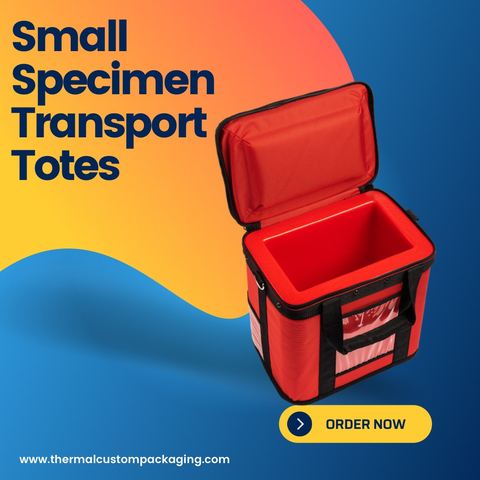Thermal Custom Packaging Provides Dry Ice Alternative for Allograft Transportation
Thermal Custom Packaging (TCP), a company specializing in transportation solutions for COVID vaccines, sensitive healthcare and military cargo, provides essential storage for allograft transportation using phase change material (PCM). To avoid potential barriers to treating patients with an allograft-based procedure due to poor storage and transportation of the allograft, TCP has crafted the PC-21 tote, an ultracold -21 ºC phase change material carrying tote.
This press release features multimedia. View the full release here: https://www.businesswire.com/news/home/20220301005007/en/

Specimen transportation totes (Graphic: Business Wire)
The use of allografts in orthopedic surgeries is vital to the treatment of a variety of musculoskeletal lesions, ranging from osteochondral defects in the glenohumeral joint to meniscal deficiency. Fresh osteochondral allografts, fresh-frozen meniscal allografts, soft tissue allografts, and off-the-shelf cartilage products, among others, all require storage and transportation methods at optimal temperatures to ensure the health and efficacy of the allograft and relieve concerns over disease transmission when transplanted.1
Hospitals maintain allografts in ultra-cold refrigerators between -80ºC to -40ºC as this qualifies for a shelf life of up to five years. In accordance with the American Association of Tissue Banks (AATB) standards, those allografts can be stored above -40 and below -20 ºC for 72 hours and be returned to long-term storage.
All of TCP tote units can be fitted with either a 0ºC, refrigerated (PC0), -7ºC, frozen (PC-7), -16ºC, frozen (PC-16), or -21ºC, ultra-cold (PC-21) PCM unit depending on the need. All are nontoxic, reusable PCMs capable of being stored for years without losing efficacy. With PC0, PC-7, PC-16 and PC-21 totes, TCP is providing a safe-proof transportation case formulated to keep temperatures stable in a specified temperature range – including, short, long-term, and temperature-controlled storage absorbing or releasing latent energy. TCP’s lightweight insulated cases are capable of transporting allografts while holding up to -21ºC temperatures for many hours.
“Currently many hospitals and surgery centers use dry ice to store and transport allografts at the proper temperatures, but dry ice is not foolproof,” says Founder and CEO of Thermal Custom Packaging, Dr. Clifford Glade. “Dry ice is impossible to maintain, as it evaporates back into CO2 as soon as it is formed, making it an expensive, ongoing cost, as well as a hazard to the environment and potential danger to the handler. We are proud to offer a safe, effective and environmentally-friendly alternative with our PCM storage and transportation totes, equipping medical professionals with the tools they need to focus on patients.”
About Thermal Custom Packaging (TCP)
Thermal Custom Packaging (TCP) is a medical product manufacturer—specializing in cold-chain transport solutions, insulated containers (totes), and the chemical reactions that maintain them. The Florida-based manufacturer run by doctors, has a unique understanding of what is needed out in the field and designs with input during testing in the field. The company is the force behind the PC-21, the latest transport technology for mRNA COVID-19 vaccines and antibiotics—frozen without dry ice. Many of the world’s largest healthcare services rely on TCP solutions.
- Beer, A. J., Tauro, T. M., Redondo, M. L., Christian, D. R., Cole, B. J., & Frank, R. M. (2019, December 30). Use of allografts in orthopaedic surgery: Safety, procurement, storage, and outcomes. Orthopaedic journal of sports medicine. Retrieved February 12, 2022, from https://www.ncbi.nlm.nih.gov/pmc/articles/PMC6937533/
View source version on businesswire.com: https://www.businesswire.com/news/home/20220301005007/en/




